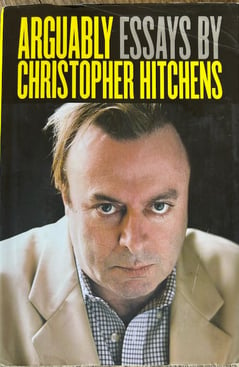ChatGPT VS Professional Writers: Who Creates Better Copy?

So, the big question on every blogger's, copywriter’s, and English professor’s mind is - how do I feel about ChatGPT?
I have been a professional nicotine-fueled-caffeine-addled-pace-grooves-into-carpet writer since circa 2014 (the year of the West Africa Ebola outbreak and my first short story publication entitled Bleached). You know the schtick - the morose English Major downing mead in the bars on the outskirts of Oregon State University - fall fire falling from collegiate oak trees.
I was a poet, a fiction writer, an insatiable reader - Christopher Hitchens, Sherman Alexie, Stuart Dybek, and Anne Carson lugged ‘round in my bookbag. I wore tweed, smoked a pipe, and played the lovely grand piano in the MU during those dismal dreary days sans sunshine. I loved and lost and won. I drove my dented Ford Escort to school, listening to my future wife’s radio show plugging novel 80’s hits. I was, for all intents and purposes, the best embodiment of the brooding anglophile academic I could manage. So, of course - true to the cliché, I went on to receive an MFA in Creative Writing from San Diego State University - that was karma, that was kismet, that was the Wu-Wei.
During my tenure at SDSU, I developed an affinity for instruction, teaching rhetoric (Aristotle’s appeals, kairos, PACES) and creative writing (plot, alliteration, stream-of-consciousness, and neologisms). And the writing, the writing was going damn well with nominations for two national awards under my belt. I had discovered a niche in microfiction & flash-fiction predicated upon short, punchy sentences and off-putting protagonists. Then covid…
Shortly after I graduated with my terminal-teaching degree, covid ravaged the nation - a wildfire of death. Universities shut down. I couldn’t write. And here I had spent three laborious years dedicating my life to the craft - teaching, writing, volunteering - seemingly all for nought.

Like many English creatives outside of academia, I soon found myself in marketing writing for a construction company called Dalinghaus Construction, Inc. I discovered the niche sphere of blog writing - keywords, header-tags, meta descriptions, and much more. It wasn’t Greek. It wasn’t Latin. It was completely alien to its core - a confusing and digitally-driven world.
Luckily for me, a rather adept and brilliant content strategist took me under his proverbial wing and showed me the ropes. Soon, my content began to convert: leads to customers to revenue. And, to cut a long story short, I am still in marketing today (although, I do concurrently lecture at the local university).
Indeed, ChatGPT is a serious area of concern among my fellow academics and university lecturers.
Now, this may seem like a long-winded introduction - and it is. But this is by no means the sum total of my experience; this is a brief skeletal blueprint of what I bring to my copywriting every single day: personal-human-experience - the human condition.
What a truly strange, terrifying, and timely distinction.
With ChatGPT, Jasper AI, and other not dissimilar tools - what is to become of copywriters and similar content-driven roles? Should we fear or embrace our inevitable artificial intelligence future?
These are questions I was confronted with when Kevin Phillips (Media Junction’s Director of Content and my mentor) asked me to explore ChatGPT. How can it be harnessed as an effective marketing tool?
Well, here is my (what the kids these days call) hot-take on ChatGPT generated copy and whether it is a tool to be ignored, utilized, feared, or some combination of all of the above.
ChatGPT - First Impressions
Right off the bat and into left field, I was skeptical of ChatGPT. After all, I have credentials: I teach at the university level, I’ve published a generous handful of short stories, and I've had over a hundred of my blog posts hit the first page of Google. Why is this disembodied copying clown “after my job?”
*Note - This is not bragging, this is insecurity.
In other words, like so many others in the content game - I’ve spent the better part of a decade diligently honing my craft: grammar, punctuation, tone, voice, on-page SEO, and tricks of the trade (alliteration, cadence, and irony). There is simply no way ChatGPT could hold a candle to all of my years of experience and innate clever self-deprecating expression.
Or…could it?
Below are my thoughts on ChatGPT in terms of speed and copy editing capabilities (for voice and tone rather than grammar). So, let’s dive the hell in.
1. Speed - ChatGPT is Fast
There is no denying - ChatGPT is fast, lightning fast. You pop in a prompt and presto - seconds later there is perfectly logical copy. An average person types between 38 and 40 words per minute. For context, I average 70 words a minute and professional typists hit anywhere between 80 to 90 WPM.
ChatGPT can render entire paragraphs within mere seconds - logically structured, grammatically correct, SEO-optimized paragraphs. For example, I just asked ChatGPT for Benefits of ChatGPT (yes, how meta). Six seconds later - ChatGPT provided the following self-appraisement.
Benefits of ChatGPT:
- Natural Language Processing (NLP) Capabilities: ChatGPT has been trained on a large corpus of text and can process and respond to a wide range of human-like language inputs.
- Real-time Responses: ChatGPT provides immediate and fast responses to user inputs, making it an ideal tool for real-time conversational applications.
- Customization: ChatGPT can be fine-tuned for specific use cases and domains, allowing for greater relevance and accuracy in responses.
- Cost-effectiveness: ChatGPT eliminates the need for manual data labeling and reduces the cost of creating and maintaining conversational AI systems.
- Scalability: ChatGPT can handle a large number of requests and conversations simultaneously, making it a scalable solution for organizations of any size.
ChatGPT’s speed proved sublime and the quality of the text (in my opinion) did not suffer due to the quick turnaround. It may not be as nuanced or pleasurable to read as human-written text, but it does convey the heart-of-the-message succinctly.
Many marketing directors, marketing managers, content managers, and lowly copywriters feel the need for speed (perhaps a double entendre). Especially when we consider professional writers are often finicky and moved by the moment - the brain chemistry must be “just so” to pump out content.
Process is key - the Narnia-esque door which the writer bravely ducks through to access creativity and the part of the subconscious that needs to move freely, unencumbered.
Think repetition. Think ritual. It is a sacred process…and it all takes time.
Hours spent:
- Outlining a specific piece of content
- Researching & Interviewing
- Pacing outdoors squeezing a stress ball
- Agonizing over a single sentence
- Deleting said sentence
- Putting said sentence back again
ChatGPT does not reconsider its process, word choice, or sentence structure. There is no mulling over commas or consideration of italics vs quotation marks.
ChatGPT is ridiculously fast (without the cognizance or ego to double-check or triple-check work). Granted, a human could and should, meticulously comb through all ChatGPT generated text and edit accordingly - for voice, tone, and accuracy.
But, ChatGPT seems to do at least 75% of the work (in my estimation) when generating brand new, high-quality content. But, does ChatGPT pack a punch when it comes to an engaging voice and tone?
2. Copy Improvement (Voice and Tone)
I’ve been around the cutting-room-floor once or twice. I am no stranger to rough drafts and ruthless edits: cut that, elucidate here, and what the hell were you thinking? Editors are a necessary evil. They keep us honest - keep the writing tight.
While ChatGPT can spit out quick, factual, and grammatically correct copy (which is a godsend) - can it improve previously polished copy? In other words, can it improve my (and other writers of a similar caliber) best effort?
In my current limited experience, this is not ChatGPT’s strong suite.
ChatGPT performs a lackluster job of embellishing on, let alone improving, strongly-vetted copy.
For example, I put ChatGPT to the ultimate test and asked it to rewrite an introduction crafted by yours truly (from my article Insourcing vs Outsourcing Content Creation: Pros and Cons).
*Please Note - in terms of process, I estimate it took me a good ten minutes to conjure up the following introduction - that’s just how my process works.
Slater’s Original -
Life is brimming with baffling existential queries - what happens after we die? Will the Minnesota Vikings ever win the Super Bowl? What are succinct, black-and-white pros and cons of insourcing vs outsourcing content?
The copy above is fun, punchy, and asks a series of rhetorical questions meant to engage the reader. Our company is based out of Minnesota (don’t ya know) and I wanted to bring some hometown flavor to the blog post. Sadly for MJ, the Vikings have yet to win a Super Bowl - but they’ll always have our prayers, well wishes, and (occasionally) money down.
My parents went to college in North Dakota, so I am not immune to Viking-centrism.
Now, here is ChatGPT’s rewrite based on the following prompt - Improve the following copy [insert copy here].
ChatGPT Rewrite -
Life presents many perplexing questions - what occurs after death? Will the Minnesota Vikings claim a Super Bowl victory? What are the key advantages and disadvantages of insourcing and outsourcing content?
This is not bad. A quick overview of the direct edits show that ChatGPT trimmed down my original copy, nixing words such as: “baffling existential queries”, “ever”, “succinct” and “black-and-white” - sanitizing the text to create easier readability.
Accessibility is king.
On the whole, I contend that the ChatGPT text is less engaging - plain and simple.
However, I think it is only fair to give ChatGPT another shot - ChatGPT is only as strong as the user wielding it. I asked ChatGPT to “Make the following copy more engaging:..”
ChatGPT Engaging Rewrite
Life is full of mysterious and thought-provoking inquiries, such as what awaits us after we pass on, whether the Minnesota Vikings will finally secure a Super Bowl win, and the pros and cons of deciding between insourcing and outsourcing content creation. Join us as we delve into these intriguing mysteries and uncover new insights.
The language here is, indeed, much more flowery - ChatGPT inserting a higher-level of diction than previously utilized as demonstrated by sprinkling in of polysyllabic and more singular words/phraseology:
- Mysterious
- Thought-provoking
- Secure
- Delve
- Intriguing
However, ChatGPT took my original three sentences and combined them into two. This results in a long, winding first sentence that could prove difficult to digest.
ChatGPT is only as good as the prompts.
All of this to say - I have yet to enjoy the voice and tone of the copy written via ChatGPT. There is nothing magical or personal. So, let’s try yet another prompt: I asked ChatGPT to rewrite the following copy in the voice of Christopher Hitchens (my favourite essayist and former writer for Vanity Fair). He has a remarkably distinct writing style.

ChatGPT Christopher Hitchens Copy -
The concept of life is overflowing with perplexing and intellectually stimulating queries - what happens when we shuffle off this mortal coil? Will the Minnesota Vikings ever ascend to the pinnacle of success and claim the Super Bowl trophy? And what are the stark realities of choosing to either insource or outsource one's content creation? Let us delve into these mysteries with a critical eye, and uncover new perspectives that challenge the status quo.
The diction begins to become a bit dense here and difficult to navigate - unnecessarily so. Granted, Mr. Hitchens was a rather verbose rhetorician - but, those familiar with his work will know it doesn’t quite hit the mark.
For a more familiar voice to push this idea harder, here is esteemed President Barack Obama’s version.
ChatGPT Obama’s Copy:
My friends, life presents us with a multitude of fascinating and thought-provoking questions - what becomes of us after we depart from this world? Will the Minnesota Vikings one day hoist the Vince Lombardi Trophy? And what are the clear-cut benefits and drawbacks of either insourcing or outsourcing one's content creation? Let us come together to explore these mysteries and gain new insights.
This, in my opinion, sounds like it could be attributed to any current leader. The language, right out of the gate, is focused on unification - my friends. We move into high diction - polysyllabic words, complex sentence structure, and a unifying call to action.
In short, I prefer my own punchy and pithy copy (and, yes, I am a tad bit biased).
However, I believe it is only a matter of time until AI can assimilate, shuffle, and produce copy that imperceptibly mimics Obama’s or any public figure’s verbal, writerly presence.
If you would like to learn how to develop your own unique blogging voice, peruse my article:How to Develop Your Writing Voice in 3 Simple Steps.
Currently, tools such as Grammarly and HemingwayAP are better suited to edit copy without sacrificing the original writer’s voice. And, granted, that is indeed their design.
ChatGPT General Considerations
This is only the beginning - the proverbial cusp of AI greatness. It goes without saying, artificial intelligence will continue to evolve (survival of the fittest) and be more-or-less integrated into the workplace: fresh copy (emails, blog articles, memos), search engine optimization, workflows, the possibilities are endless.
I will go so far as to postulate that AI will soon kick-out poetry, short stories, and full novels that entertain and inspire. Think second-hand-life.
AI will scrape Google clean and move onto literature - formulating reshuffles of the human experience into the formulaic stricture of story (what does the protagonist want, what is the internal/external conflict, does the story end in logical exhaustion or resolution, and is there urgency).
AI, much like computers, is here to stay. Fear is futile, Pandora's Box has already been opened wide.
The good news is, the underlying gospel message - ChatGPT is a tool to be utilized to make our lives easier. ChatGPT provides a great, flexible base upon which to build out blog posts, emails, and other similar long-form copy. It can pump out relevant listicles and strong outlines. It's a cheap organizer and secretary.
But, there is no substitute for the human condition...
ChatGPT didn’t grow up in the Islands of Fiji as a Kaiviti (white man with a Fijian heart) or farm grass seed for eight years (hours and hours on a John Deere combine listening to Savage Nation on AM radio) or have it’s first kiss under the Brownsville bridge (the bridge that’s in Steven King’s film Stand By Me). All of that, and much more, belongs to me.

Summed up: ChatGPT has none of your experience. And, is at best, a sophisticated digital parrot among men.
What’s Next? Would You like Help with Your Blog?
In this article, you learned how ChatGPT can produce fresh, “instant” content, but has yet to quite hit the mark in terms of copy improvement via voice and tone.
If you would like to learn how to become a better blogger, read our articles:
- The Anatomy of a Blog Article - Intro, Body and Outro
- Business Blogging Checklist: Blog Optimization 2023
Whether you’re considering starting a blog from scratch or optimizing an existing blog, we’re here to help. Media Junction empowers marketing teams across the globe to develop, execute, and optimize their blogging strategy.
Written by:
Seth SlaterSlater teaches English at University of Arizona. He has contributed poetry, fiction, and nonfiction to journals such as the Chicago Quarterly Review, New Madrid: Journal of Contemporary Literature, Metonym, and The Carolina Quarterly. Slater is a former content trainer of Media Junction.
Related Topics:



